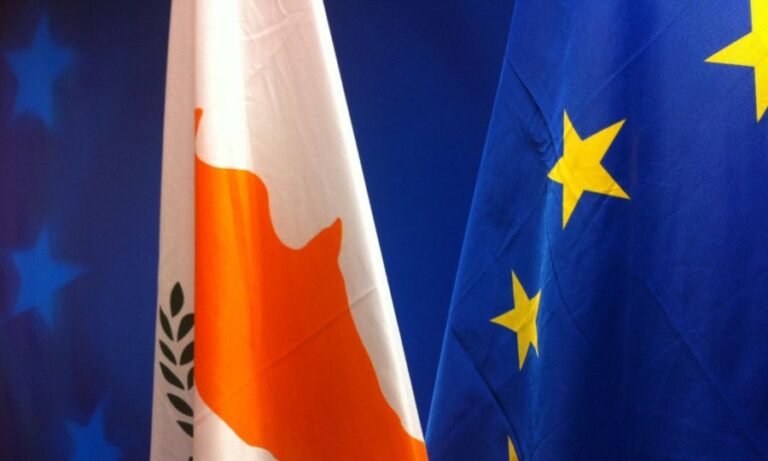When, last March, as usual, the newly elected President Christodoulides visited Athens in his new capacity as Greek Prime Minister, the news of the creation of a “supreme body of institutional coordination between Greece and the Republic of Cyprus” made headlines, at least in the news. Four months later, we no longer hear about this body, the use of which will not replace the existing coordination – at high level or specifically at ministerial level, between Athens and Nicosia. The recent re-election of Mitsotakis, with a resounding percentage for New Democracy, as well as the announcement of a cabinet with “centrist” choices for the ministries of Foreign Affairs and Defense, become particularly interesting not only for the way in which he will interact with Nicosia, but also on the way in which it will evolve in relation to the Cyprus question, the first impression being that of a wait-and-see attitude regarding Nicosia’s desire to relaunch the dialogue on the Cyprus question, with the difficult diplomatic exercise of involve the European Union.
There is no doubt that Athens, both as a guarantor power in Cyprus and as a partner country within the EU, as well as on a moral and symbolic level, remains the main supporter of Cyprus on several levels. However, the trends that can be expected in the functional, diplomatic relations between Athens and Nicosia, in relation to the whole developments in the Eastern Mediterranean, of which Greek-Turkish relations and the Cyprus question are an integral part, are dictated through precise realistic choices:
Athens will aspire to maintain the dynamic of calm in the Eastern Mediterranean and particularly in the area of Greek-Turkish tensions in order to gradually see if there is a medium-term perspective for dialogue on the issue of maritime zones with Turkey. This trend, reinforced by the American factor in the region under the weight of the ongoing war in Ukraine, currently constitutes the first priority of Greek foreign policy.
Greece may view the Cyprus issue as a foreign policy asset, but, as was clearly evident in 2016-2017, it is diplomatically interested in its outcome, particularly in the aspect of security and guarantees that concerns it directly. Any involvement is therefore limited to this level alone.
The Mitsotakis government appears to be taking a wait-and-see approach to Nicosia’s overall approach to involving the EU in an exercise which now, as Thursday’s summit revealed, also concerns Euro-Turkish relations.
When, last March, as usual, the newly elected President Christodoulides visited Athens in his new capacity as Greek Prime Minister, the news of the creation of a “supreme body of institutional coordination between Greece and the Republic of Cyprus” made headlines, at least in the news. Four months later, we no longer heard of this body, the use of which would not replace the existing coordination – at a high or strictly ministerial level – between Athens and Nicosia. The recent re-election of Mitsotakis, with a resounding percentage for New Democracy, as well as the announcement of a cabinet with “centrist” choices for the ministries of Foreign Affairs and Defense, become particularly interesting not only for the way in which he will interact with Nicosia, but also on the way in which it will evolve in relation to the Cyprus question, the first impression being that of a wait-and-see attitude regarding Nicosia’s desire to relaunch the dialogue on the Cyprus question, with the difficult diplomatic exercise of involve the European Union.
There is no doubt that Athens, both as a guarantor power in Cyprus and as a partner country within the EU, as well as on a moral and symbolic level, remains the main supporter of Cyprus on several levels. However, the trends that can be expected in the functional, diplomatic relations between Athens and Nicosia, in relation to the whole developments in the Eastern Mediterranean, of which Greek-Turkish relations and the Cyprus question are an integral part, are dictated through precise realistic choices:
Athens will aspire to maintain the dynamic of calm in the Eastern Mediterranean and particularly in the area of Greek-Turkish tensions in order to gradually see if there is a medium-term perspective for dialogue on the issue of maritime zones with Turkey. This trend, reinforced by the American factor in the region under the weight of the ongoing war in Ukraine, currently constitutes the first priority of Greek foreign policy.
Greece could view the Cyprus issue as a foreign policy asset; however, as was clearly demonstrated in 2016-2017, it is diplomatically interested in its outcome, particularly in the aspect of Security and Guarantees which concerns it directly. Any involvement is therefore limited to this level alone.
The Mitsotakis government appears to be taking a wait-and-see approach to Nicosia’s overall approach to involving the EU in an exercise which now, as Thursday’s summit revealed, also concerns Euro-Turkish relations.
(This article has been translated from its Greek original)


